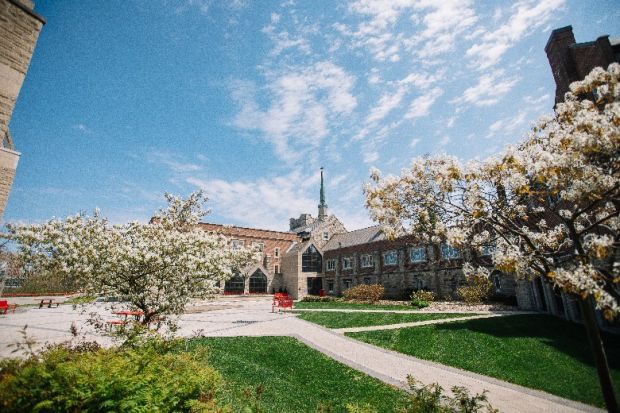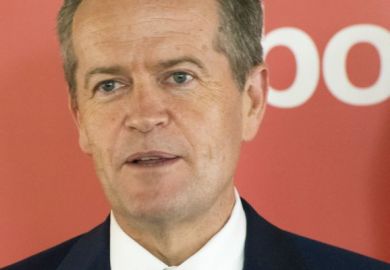A Canadian university’s liberal arts college is looking to separate after more than 140 years of ties, seeing its broad approach as being too undervalued to survive within the short-term, metrics-driven approach to modern higher education.
Huron University College was established in Ontario in 1863 to train Anglican clergyman and was the founding institution 15 years later of Western University, a more comprehensive institution. Western awards Huron degrees and the institutions share facilities and courses.
Barry Craig, Huron’s president, wants that relationship to continue, but wants Huron to gain the right to set its own curriculum and award degrees in its own name.
Since taking on the role, Dr Craig has doubled Huron’s first-year enrolment with a promise to emphasise the relevancy of liberal arts to both careers and community service.
Five years in, he told Times Higher Education, he is finding unacceptable limits on his 1,500-student campus from the governance of a 35,000-student research university.
Huron aims to produce liberal arts graduates with both the skills for long-term job success and the readiness to confront such societal challenges as racial injustice and climate change, Dr Craig said.
“Those aren’t the drivers for major research institutions now,” he said.
Western appears willing, though not especially enthusiastic, to engage in talks that will set the terms for such a partnership. It responded to Huron’s move by joining with the heads of the two other Western affiliates – King’s University College and Brescia University College, both Catholic-founded – in a terse statement pledging their ongoing commitment to each other.
Dr Craig acknowledged Huron’s move was also a play for some key donors and said he expected Western to bring a “tough negotiating position”. Four of Canada’s wealthiest business leaders are Huron graduates, he said.
“We think we have a really deep bench in the alumni,” Dr Craig said. “But we want to make sure that our alumni have their greatest affiliation and loyalty to Huron.”
He sought to put the primary emphasis, however, on the decline in respect for the liberal arts and the need to find a new model that combines a classic education with direct workplace experience.
Pushed by policymakers looking to show immediate impact, Dr Craig said, Western instead has joined the rush to favour scientific fields that offer graduates quick job placements and high starting salaries.
Employers in nearly all fields know the longer-term value of a liberal arts student who comes “already packaged” with essential analytical and communications skills, and then needs just the basic company-provided training for a particular industry, Dr Craig said.
Huron is helping that process by giving its students at least one field-specific job experience during their undergraduate years, he said. That’s a key, he said, to Huron doubling first-year enrolment from 252 in 2017.
That success hasn’t, however, translated into that same business community using some of its lobbying clout to make clear to politicians the enduring value it places on the liberal arts, Dr Craig said.
As a result, he said, Canada already has lost more than half a dozen liberal arts institutions in recent years through closures, consolidations or shifts in mission. The trend is even worse, he said, in the US, which has lost about a third of its 300 liberal arts institutions over the past decade or so.
“I guess that’s the real challenge for anybody in this business,” Dr Craig said, referring to liberal arts education generally, and his own dilemma with Western. “Can I make this flourish or am I just content to have a slow-term erosion to death?”
Alan Shepard, Western’s president, said there were “many implications to consider” from Huron’s move, “and we will do so in conversation with Huron over the coming weeks and months”.
“Western is one of Canada’s top research-intensive universities, educating and inspiring our students across the range of academic disciplines, and we will continue to advance our mission in close partnership with our affiliated university colleges,” he said.
Register to continue
Why register?
- Registration is free and only takes a moment
- Once registered, you can read 3 articles a month
- Sign up for our newsletter
Subscribe
Or subscribe for unlimited access to:
- Unlimited access to news, views, insights & reviews
- Digital editions
- Digital access to THE’s university and college rankings analysis
Already registered or a current subscriber? Login










